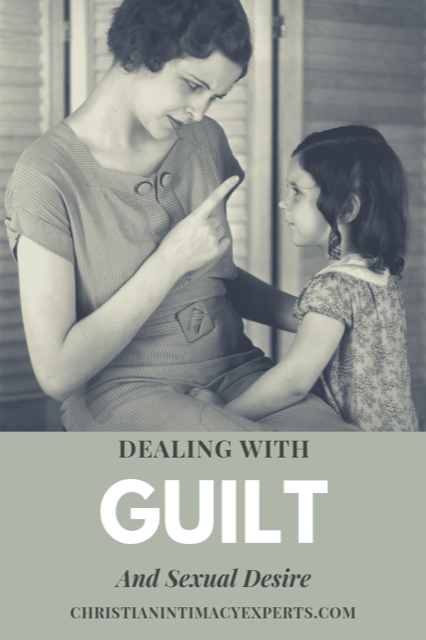An interview Azusa Pacific University did with us about singles handling their sexual desires and still honor God.
Collide Magazine Feb 29, 2012
Photo by Brandon Hook
Article by Chelsea Johnson, staff writer | English major
Christian experts say sexual desires are normal, but how we choose to respond to these urges should reflect our faith.
In January, psychologist Dr. Darrel Ray released a book titled “Sex and God: How Religion Distorts Sexuality” that reveals the results of his 2011 survey, “Sex and Secularism” with student Amanda Brown from Kansas University. It claims that Atheists have better sex lives than religious people due to the effects of guilt in connection with sexuality. Both Ray and Brown tested the following hypothesis: “The more sexually restrictive a religion is, the more it uses guilt.” Their results report that those who left religion enjoyed higher levels of sexual satisfaction.

Although this article remains unpublished in peer-reviewed periodicals, since it has yet to be peer-reviewed, it points to a subject that many churches and Christian campuses tread lightly on: sexuality. Many of us have heard the sex talk before and we know what the Bible says about sex and abstinence, but we are left to consider whether sexuality—exploring sexual impulses in varying ways—is sinful in and of itself. The topic may often be ignored and some feel guilty about even discussing it. Yet, to understand ourselves and our limits, we need to understand our desires.
Sexuality: A Battle Between Good and Evil?
APU psychology professor Dr. Michael Sapp says that sexuality is not innately evil. “There is beauty in the way God has designed sex,” said Sapp. But according to Sapp, many are left wondering where God has set other lines in regards to issues like masturbation or foreplay. A definite answer may never be found as to where exactly to ‘draw the line,’ but many Christians feel guilty about their natural sexual desires. Sapp points out that there is a fear of crossing the boundary between desire and lust.
These lines become even more blurry since many college students are sexually active in some way, or are beginning to explore their sexuality. The Guttmacher Institute published in their February fact sheet that, “On average, young people have sex for the first time at about age 17, but they do not marry until their mid-20s.” Additionally, a December 2009 study by The National Campaign to Prevent Teen and Unplanned Pregnancy revealed 88 percent of unmarried young adults (aged 18 to 29) have had sex. The study also revealed that 80 percent of respondents who identified as “evangelical” have had sex. Of these, 64 percent have had sex in the past year.
“Sexually speaking you are at your peak,” Sapp said. Instead of ignoring the desires, or fearing the topic, Sapp believes that in order to find the line, one should seek God’s guidance and be truly open to what answer is found.
At the same time, however, it is critical to remember that sexual desire is natural and not something to be ashamed of. “We are wired to be attracted,” said Sapp. “The challenge is to develop control about the next thought,” he continued.
Sapp notes that guilt is an important factor—it’s what he calls the “smoke alarm.” Whether or not the cause of the guilt stems from personal values or societal influence, the decision should be between the individual and God. “Ask whether the messages are contradictory,” Sapp said. He encourages individuals to ask themselves whether or not their conclusions in regard to their sexual choices line up with their faith system or personal values.
Sexual Repression
In David Kinnaman’s book, “You Lost Me,” Kinnaman explores the reasons why he believes millions of young people leave the Christian Church. One of the main reasons for this disconnect—the Church’s “repressive” attitude toward sexuality.
In a National Public Radio interview with Kinnaman on January 20, he said, “The big challenge is that most pastors, most families in churches—they’re not prepared for those kinds of questions,” in regard to issues like human sexuality. Young adults are struggling with sexual questions but aren’t asking them. “One of the major reasons young people said they were leaving churches was that they felt like they couldn’t ask their most pressing life questions in church,” said Kinnaman.
Bill and Janean Fuller work together as Christian sexual intimacy experts who try to help those dealing with issues like sexual guilt. They offer private ministry, as well as retreats for singles and couples. “Desire is God-given. It’s a longing to be connected,” said Bill Fuller. To feel guilty for struggling with sexuality produces a sort of shame that Bill believes to be “a powerful tool against the Kingdom.” He discussed how the Church often encourages sexual repression, which carries into married life, sometimes resulting in sexual dysfunction.
This results in the “separating of their spiritual life from their sexual life,” said Bill Fuller.
Janean said, “It takes more courage to take desires to the Lord instead of just waiting.” The couple encourages students to “embrace and start to develop their own sexual theology.” This message applies to Christians and non-Christians alike. Sexuality is connected to our most intimate selves. The Fullers say that to try to separate or ignore this part of ourselves is unhealthy; we were created as sexual beings.
The Fullers pointed to the fact that there are not always definitive “lines” when it comes to sexuality. One of the more often ignored topics is masturbation.

An anonymous responder from Darrel Ray’s previously mentioned article said, “After masturbating I would feel heavy guilt. I wouldn’t dare tell anyone what I was doing but the guilt drove me to beg for forgiveness and to make deals with God if I did it again. Of course, I always did it again. The shame I would feel was overwhelming, felt as if I was intentionally hurting God. It took years to get away from that feeling.”
“We have Scripture to guide us, but Scripture is very silent on the subject of masturbation,” said Janean Fuller. “It’s less about the letter of the law but the Spirit of the act in the New Covenant.”
Even though it may seem awkward, the Fullers say that it is important to be open and intimate with ourselves and our community, but especially with God. It’s what they call, “walking with the spirit.” They encourage people to find communities that not only hold you accountable but communities “where you can discuss the struggles.”
Janean encourages students to open up about their struggles. “No one tells singles what healthy sexuality looks like,” said Janean. “They just tell them what unhealthy sexuality looks like.” Both Bill and Janean suggest that young adults recognize that the key is what one does with the desire or lust. They say that there is no shame in sexual desire itself. Rather, one should seek God for the choice that comes next.

Sexuality is a difficult topic not only because of its taboo nature but also because it is difficult to wrangle and define. Experts seem to agree that we have been designed as sexual beings. No matter what faith or value system you adhere to, sexual desire appears to affects us all.

Leave a Reply